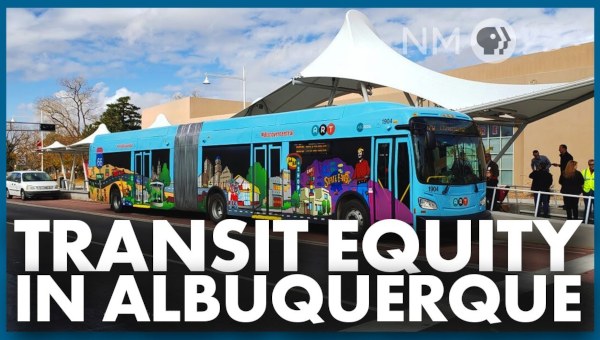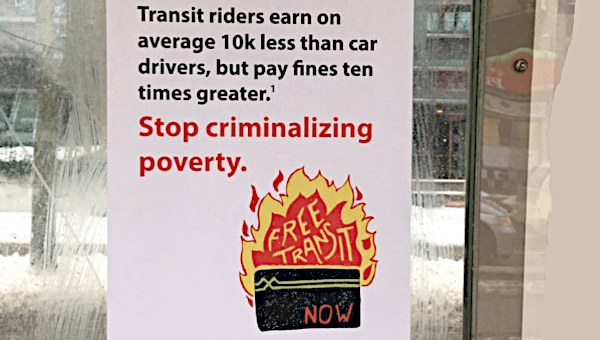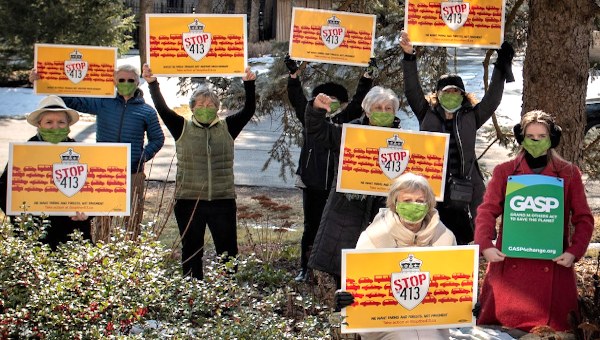What Emergency? An Assessment of Toronto’s 2008 Transit Strike
Last weekend’s two-day transit strike in Toronto raises anew and in starker terms two issues of longstanding concern to the labour movement in this city and throughout the province. First, the unprecedented rapidity with which the city sought back-to-work legislation, and the similarly expeditious and unanimous passage of this legislation by all parties of the provincial legislature, represents a monolithic rejection by governing elites of transit workers’ right to strike. Second, and equally worrisome, the strike has revealed the inadequacy of organized labour’s political capacities in a city where vicious anti-union sentiment lies just beneath a superficially civil discourse, and the municipal privatization agenda remains essentially unchecked.
Three Strikes
On March 12th, Amalgamated Transit Union Local 113 members voted overwhelmingly to reject the TTC’s (Toronto Transit Commission) final offer: a contract which proposed a sub-par wage settlement, rejected union demands for improved benefits, and opened a second tier for new hires. The union executive spent the following month in negotiations with a strong mandate to walk out if the 2005 contract expired on April 1st without a new agreement. A tentative contract was reached by the bargaining committee on Sunday, April 20th, narrowly averting a Monday strike. Local president Bob Kinnear presented this as a ‘no-concessions’ contract and recommended ratification without, however, having secured the full support of the committee.
Wage gains in the new contract were in line with other union settlements: operators were given full pay when off work due to workplace-related injuries, other benefits were topped up and skilled trades received wage premiums. Management withdrew its two-tier demand. But some of the language was sufficiently unclear on contracting-out and seniority to raise concerns among maintenance workers and operators in the transportation division. This lack of clarity was highlighted by bargaining committee members, based in the maintenance division, who are hostile to Kinnear’s leadership and campaigned against ratification. The tentative contract was put to the membership on Friday, April 25th, and voted down by a significant majority. It was solidly rejected by maintenance workers and by approximately half of transportation division members, who voted both out of solidarity with maintenance and out of their own concerns relating to seniority. The executive was subsequently notified that a strike would shortly commence, and Kinnear moved quickly to lead the walkout with the support of his board.
Throughout the 1980s and 1990s, transit workers have succeeded, almost alone, in blocking employer attempts at dividing their union and lowering wage costs through the introduction of part-time positions and contracting-out of services. They have done so through strike action, the credible threat of walkouts during negotiations, and work-to-rule campaigns. When they have struck over job security issues, they have been condemned by management and the press for being ‘paranoid’ and ‘irrational’. Similarly, the TTC promised during last weekend’s strike that it had no intention of contracting-out maintenance services and that no employees would lose their jobs. But transit workers know well that any concession, no matter how ambiguously worded or ‘exceptional’ in nature, will be seized upon by management as a precedent for further concessions in subsequent negotiations, leading to the weakening of union power over time. In any event, you can’t take a promise to arbitration, and transit workers have no reason, given recent experience, to place their faith either in management’s promises or judges’ rulings.
This most recent strike is the third walkout under Kinnear’s presidency. In 2004, 700 maintenance workers downed tools for a day and half at the TTC’s Hillcrest Yards over a work rule issue. Instead of negotiating with the union over what amounted to a minor matter – the closing of one of the yard’s pedestrian access gates – management sought and received a cease-and-desist order from the Ontario Labour Relations Board (OLRB). In 2006, custodial workers set up a picket when management moved a number of their positions to the night shift. Again, instead of negotiating the issue as it had promised to do, the TTC shut the system down, secured an immediate back-to-work order from the labour board, and then sought $3 million in damages from the union. Management and the Commission defend the alacrity with which they seek state sanction in mid-contract disputes as necessary to demonstrate to the workforce ‘who is in charge,’ since Kinnear appears either unable or unwilling to discipline his own members (as stated to the author in interviews with Scott Blackey, Director of Human Resources, TTC; Adam Giambrone, Chair of the TTC; and Joe Mihevc, TTC Commissioner – the last two being New Democratic Party – NDP elected councilors for Toronto).
The April 25th walkout was a legal strike whereas the previous work stoppages were ‘illegal.’ But the employer’s immediate recourse to back-to-work legislation in the third strike effectively dissolves the difference. It is clear from the record of the past four years that neither the city nor the province will tolerate the collective withdrawal of transit workers’ labour. Now all strikes are de facto illegal.
The ‘no’ vote and subsequent walkout last weekend are expressions of militancy from a powerful sector of Toronto’s labour movement. In echoing the rejection of a tentative contract by ATU-affiliated GO workers late last year, it points to the use transit workers are making of their economic leverage. As mass transit becomes ever more important in organizing the commute in the metropolitan region, and therefore also of organizing urban form and development across the GTA, the labour that transit workers perform has become more valuable. The irony is that instead of becoming more highly valued as a result, transit workers face ever greater discipline. To be a productive worker in neoliberal Toronto, it seems, is not a piece of luck but a misfortune.
Questions for Howard Hampton
“If these workers are so bloody essential, why don’t you pay the best possible wages?”
Ontario NDP leader Stephen Lewis speaking in the provincial legislature before voting against back-to-work legislation ending a 23 day transit strike in 1974 (Hansard, August 31, 1974).
The city requested back-to-work legislation within hours of the strike. The provincial government convened an emergency session for that purpose within a day and a half. In fact, the legislation had already been drafted the previous week, when the parties were still negotiating. The Legislature opened at 1:30 Sunday afternoon and by 2:00 pm the bill had passed three readings.
ATU members were forced back to work before their strike began to have its real economic impact, which is to shut-down the weekday commute. The ability to disrupt the commute is what gives transit workers the leverage to bargain a better contract. The weekend strike made traveling in the city, including some work trips, more difficult – not impossible, or dangerous. The increase in traffic was hardly noticeable, no shipments were delayed on that account, and no workplaces were closed. And yet the strike was treated as if it were a major urban crisis. When the Eves government ordered sanitation workers back to work in 2002 with the support of both Howard Hampton and Dalton McGuinty, the government at least went through the motions of arguing that the strike posed a significant threat to public safety. What is so dangerous about a transit strike that 8,900 workers had to be stripped of their rights to strike and freedom of association before they could properly exercise them?
In presenting the bill, Labour Minister Brad Duguid spoke of the TTC as the ‘backbone, the lifeblood’ of Toronto, itself the ‘engine of the economy of both Ontario and Canada’ (Hansard, April 27, 2008). The increased traffic caused by a strike would not only inconvenience drivers, it “will also translate into higher pollution levels, with the related health effects and impact on our environment.” Bob Runciman, leader of the opposition Tories, noted that, before the strike, he “wasn’t aware of how significant it [the TTC] was in terms of environmental impact” (Hansard, April 27, 2008). McGuinty and Tory MP Peter Shurman spoke of the effect of the strike on workers and the most vulnerable residents of the city. Every speaker expressed their faith in collective bargaining.
You don’t have to be the leader of a workers’ party to point to the contradictions and hypocrisy expressed that day in the Legislature. Dalton McGuinty used the occasion of debating back-to-work legislation in 2002 to blame Tory governments for the deterioration of public services in the city and for poisoning bargaining relationships with unions. But in 2008, Hampton said nothing along these lines, even though the McGuinty government has done very little since coming to power to restore provincial services and municipal funding, and McGuinty himself undermined the transit negotiations with his public musings about essential work legislation.
Why does it take a strike for the government and official opposition to recognize the importance of mass transit to the provincial economy, the lives of working people, and the environment? If mass transit plays such a significant role in reducing pollution, why hasn’t the Liberal government restored operating subsidies to what they were before the Tory cuts? And if mass transit is an essential condition of the competitiveness of the Toronto regional economy, why is the level of government subsidy on a per-ride basis 2 times higher in New York City and 5 times higher in Chicago – our supposed urban competitors – than it is in Toronto? The TTC is the worst-funded public transit system in North America. Police, emergency medical and firefighting services are deemed essential because they are necessary to the preservation of public safety. And because they are considered essential, they are provided free of charge to the recipient. If mass transit is an essential service, why should riders pay three quarters of the operating costs at the point of delivery through ever-increasing fares?
From the perspective of the state, the emergency resides in the economic disruption that a transit strike causes in a city like Toronto. The point of a strike, of course, is to cause economic disruption. If the state is going to ban strikes which cause economic disruption – rather than appealing to the higher standard of a threat to public safety – where will it draw the line?
In speaking to the back-to-work legislation, Howard Hampton made his reservation known on language in the preamble which suggested that the TTC is an essential service. This was a dodge, not a defence. The city of Toronto already has ‘essential’ transit workers – on the cheap. Runciman spoke truthfully when he noted that the consent of all parties to the emergency Sunday session proved that transit workers’ right to strike was ‘illusory’ (Hansard, April 27, 2008). In joining with the other parties to legislate ATU members back to work, the Ontario NDP believed that it was making an electoral calculation (one could say the same of the NDP-linked Mayor David Miller and many of the NDP city councilors). But in so doing the NDP has made itself indistinguishable from the governing Liberals on a matter of vital importance to the labour movement. Trade unionists are working in a province where the government can strip us of our right to strike without any parliamentary expression of dissent from a labour-backed party. That is our emergency.
A Left Strategy for Transit
There are two voices in the city which speak for a transit system based on the principles of distributional justice, democracy, and equal access: the riding public and the workers who move them. The failure of the union to give adequate notice when they launched their strike late on a Friday night was a tactical error. The strike has made a united worker/rider defence of public transit more important – but for the lack of notice, more difficult – than before. If this seems an unlikely prospect at the present time, we can nevertheless begin to think about how to build such a campaign.
The union should raise the banner of a free fare. High fares are a workplace issue. The fact that fares are rising faster than inflation, in the context of declining family incomes and no significant improvement in service, creates conflict between riders and front line workers. The resulting stress on operators takes a heavy toll on their health: TTC workers have the highest occupational rate of post-traumatic stress disorder in the province – four times higher than police officers. While a free fare cannot be made a contract issue, the union could declare ‘pay-what-you-can’ days. A free fare would have a significant redistributive effect while reducing the city’s greenhouse gas emissions. Other North American cities have set a precedent in this area. The provincial Liberal Party and the NDP at both the provincial and city levels have done little to advance an alternate transit policy.
The union should develop a capacity, in common with rider and neighbourhood associations, of intervening in TTC service design and expansion plans, with a preference towards improving service in the poorly served inner-suburban areas of the city. Neoliberal governments make money available for capital spending, but not for operating expenses. The union should be a voice for improving the system where it will make the most difference in improving people’s access to the city as a whole, rather than directed towards the endless process of making downtown Toronto a more competitive location for capital. •





